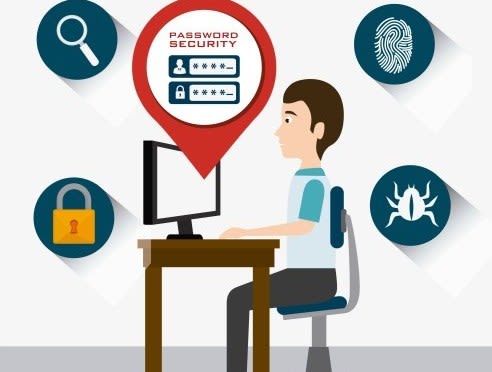US security and privacy laws tested by internet surge
The most heated debate seen in the past few weeks has focused on how to balance US security and privacy laws to empower a free society.

Daymond John: Millennials lead in smart business technology

Pakistani economy cuts deficits in half in 2015

Android MOTO 360 2nd Generation review: A premium design

The internet platform has revolutionized the use of digital devices but also revealed nations are in deficit of laws that will deal with brass-bound encryption of personal data. This is true when encrypted information on the internet has proved successful in stopping terrorists' plans and attacks around the globe and protect US security.
One of the most heated debates and views shared in the past few weeks has focused on how to balance US security and privacy laws to empower a free society. The discussion also centers on how to enable our society to use technology efficiently and to defend the national security of nations all around the world against terrorism.
The FBI, Apple, face tough choices on US security and privacy
Recently in the United States, the Federal Investigation Bureau (FBI) requested Apple to help in an ongoing investigation of the San Bernardino attack that occurred on US soil many months ago. The agency asked the company to break an encryption code on the phone of the perpetrators. Apple has argued that unraveling such encryption will need the building of a new software, which may also become a master-key for hackers and compromise the privacy of iPhone users around the world. The company is, therefore, unwilling to give in to the FBI demands.
As the debate unfolds, Apple shows a determination to present its case to the US congress, where it hopes to allure lawmakers to see the dangers of obeying such orders. Other tech companies are also siding with Apple, citing a counter-productive result will occur with a new software. Perhaps, alluding to the open secret that all the tech companies, including Apple, are vigorously pushing for lawmakers to set the rules for US security and privacy laws that will guide unbreakable encryption of personal data.
The internet revolution must have meaningful laws
Recent data estimates over 2.5 billion people in the world today have embraced the internet as a platform to share data and promote businesses. The universal use of smartphones, computers, and tablets makes the two-decade-old internet era a forceful one.
Whilst this is laudable to be applauded, the internet platform has also become an alien territory, lacking both national and international laws to protect security, internet privacy and regulate the global use of internet information. Therefore, any government’s role to protect its citizens by enforcing internet laws must be a priority. About 90% of all internet data has surged recently. This continues to test global and US security and privacy laws as some information on social media and encrypted text messages pose a threat to society.
Some of the United States security experts have argued that we cannot stop firm encryption of data because our society is more secure with this technology for both our privacy and security. But the question is, at what point do we put preference on security over privacy or vice versa in this campaign? First, to protect an individual’s privacy and secondly to protect a nation’s security.
The Business Frontal opines Apple could help the FBI unlock this phone to protect US security. However, if this is not practically possible, then there is an open door for both the tech companies and the government to engage in discussions that will bring lasting solutions to solve privacy and security issues. This saga confirms privacy and security overlaps technology and terrorism to a greater extent. When we create effective internet laws and enforce them, then our privacy and national security become protected at the same time.

Enoch Antwi
Enoch Antwi is the managing editor at The Business Frontal. He worked as a business and an environmental journalist in the late 1990s with the Business and Financial Times. His passion is to provide on-demand valuable information and insights on business, entrepreneurship, leadership, innovative technologies, and principles for corporate success in today's business world.
More from Editorial

Mergers & acquisitions: The buzzing global wave

Trans fat elimination must be made permanent

Let's manage information technology well

Equity crowdfunding must continue its gains in 2015

Emerging markets in a volatile global economy

Global entrepreneurship summit: An engine for change?

Google Science Fair charts the way forward for innovation


